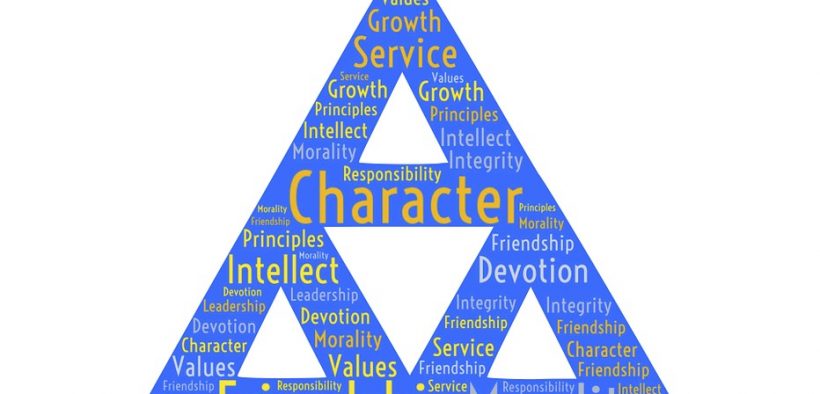SHAC, Tri Delta Work to Promote Positive Body Image on Campus
Share

In honor of National Eating Disorder Awareness Week SHAC and Tri Delta co-sponsored events intended to increase education and awareness of eating disorders.
The week of events featured a “How do you self-care? Wall,” a screening of the documentary America the Beautiful: Is America Obsessed with Beauty? , and the distribution of positive affirmations through “Take What You Need” flyers and chalking on sidewalks and mirrors.
“We decided to do these events because a student emailed SHAC requesting it,” SHAC President Aimee Slagle said. “Eating disorders are extremely prevalent among students because young adulthood is when this normally happens.”
SHAC advisor Betsy Naylor reached out to Tri-Delta to co-sponsor the events because the sorority focuses on body image. .
“This past semester I was chosen by my chapter to be the Risk Management Chair and Body Image Coordinator for Spring and Fall 2015,” junior Monica Miller said. “As one of my first events, I brought Betsy Naylor to my chapter to speak on alcohol poisoning and how to drink responsibly. After talking with her about other things she does on campus, she invited me to attend a SHAC meeting to perhaps begin a collaboration for National Eating Disorder Awareness Month (February). Tridelta’s main philanthropy is St. Jude Children’s Hospital, but we also work with Body Image 3D – a group founded by Tridelta in 2012. “
Miller said that the mission of Body Image 3D is to promote “a healthy mind, healthy body, and healthy spirit.”
“Since Tridelta was founded in 1888, we have initiated over 200,000 women – no two the same person,” Miller said. “We want to remind and empower women every day to remain true to who they are. There is no “perfect woman.” There’s every woman.“
According to an article written by Dr. Beth Blodgett Salafia from North Dakota State University titled, Eating Disorders and Disordered Eating: What are the Differences?, the precursor for eating disorders is disordered eating habits. North Dakota State University defines disordered eating to be irregular or unhealthy eating behavior or attitude. Those behaviors include negative body image and excessive diet and exercise. It left unchecked these behaviors can lead to any number of eating disorders that include anorexia, bulimia nervosa and binge eating.
“I hope that students will learn that is is ok to talk about these issues and know that there is help, treatment, and hope for overcoming an eating disorder,” Naylor said. “No one has to be alone in their struggle and recovery process. There are caring and compassionate supportive resources on/off campus that are eager to help. However, it is the student’s responsibility with the eating disorder to reach out for help and take charge of their own recovery and healing process. I hope that friends and family members will learn how to address their concerns in loving and caring way, but to also recognize their own limits. You cannot fix this for your friend. But you can be a supportive presence along the way.”
Exact statistics on the amount of students at SU that suffer or have suffered from an eating disorder is impossible to determine due to many cases going unreported. In the United States 20 million women and 10 million men suffer from an eating disorder at some point in their life.
“There is no reason to believe that SU is any different from those national averages.,” Health and Wellness Councilor Betsy Naylor said. “Eating disorders are complex conditions that arise from a communication of long-standing behavioral, psychological, interpersonal, biological and social conditions. Scientists and researchers are still learning about the underlying causes of these emotionally and physically damaging conditions. While eating disorders may begin with preoccupations with food and weight, they are most often about much more than food.“
Each event was catered to battle the common misconceptions and myths about distorted eating.
“We want to spread awareness of the idea that there are people on this campus who are struggling,” Slagle said. “We want to show them that they are not alone.”
When asked how the SU community can help struggling peers, Naylor said that people should educate themselves.
“Attend the events on campus in order to learn more about how eating disorders impact all of us,” Naylor said. “Check out the resources in the library or the multicultural center that address body image and eating disordered issues. Talk about these concerns in your classroom setting, friends, and family, but remember to be respectful, kind, and compassionate in all of your interactions. There may be someone in your life who may be struggling, so be mindful of their struggles and refrain from making any insensitive comments. Brainstorm how you can combat the thin fashion model ideal or muscular fitness fanatic images that we see in our American Media Culture.”
According to the National Eating Disorder Association or NEDA eating disorders are complex condition with serious physical and mental consequences and is not a lifestyle choice.
“Eating disorders are about more than the surface layer,” Slagle said. “It’s not about food or being skinny but typically about a deep rooted problem that’s more important than that.”
Those struggling with distorted eating can seek treatment by contacting the SU Counseling and Health Center or eating disorder specialist in Austin. Some possibilities include the Hill Country Recovery Center, McCallum Place Eating Disorder Center, or the Austin Foundation for Eating Disorders. NEDA also has a hotline that students can call to get help. The number is 800-931-2237.
“We want people to know that recovery is possible,” Slagle said. “It’s harder to change the longer you have had a problem but we want people to know that they can break the cycle of harmful behaviors.”
